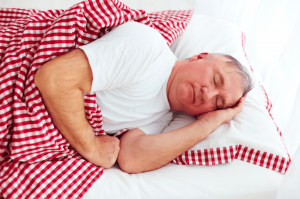Sleeping After 60: Getting Rest Is Different Than Earlier in Life, and Working at It Is Key
There is a wonder-working, health-promoting elixir of youth available for free—sleep. Yeah we know sleeping after 60 is hard.
It is also true that getting rest at night is one of the things that change as we age, and not necessarily for the better. Consequently, it helps to be in control of it. Your health depends on understanding the root causes why you sleep differently. The good news is that you can adapt healthy habits at any age. Yes sleeping after 60 is possible!
If you suffer from sleep deprivation, you are not alone. Insomnia troubles nearly half of all adults in the U.S. over the age of 60. Often, a comforting piece of advice offered to exhausted seniors is that they can get by on less sleep. Do not believe it. It is a myth that, unfortunately, even some doctors promote. In reality, elderly persons need 7 to 9 hours of sleep.
Unfortunately, getting the much-needed rest is not as easy as we get older. As we age, the likelihood of restless leg syndrome, sleep apnea, and snoring increases. One reason for sleep troubles are the injuries and advancing illnesses—big and small—that we accumulate over time and that keep us up at night. Arthritis and back pain, for example, are common sleep thieves. So is the weight gain that tends to creep up with age. They are often the cause of secondary insomnia, one that arises from other causes. In those cases, working with your doctor to treat the underlying causes of sleep disturbance is the solution.
“Insomnia is more common for seniors, partly because of health issues, partly because of the anxiety and the concerns of aging, and sometimes because of medication,” according to Jack Gardner, a sleep medicine neurologist at Baylor Medical Center in Waxahachie, Texas.
How to gain better control of your rest and health sleeping after 60? You can always get sleeping pills from the doctor—about 20 percent of elder adults do—but they come with well-known risks for dependence risks and drug interactions. Instead, or in addition to sleeping pills, consider incorporating a healthy sleep hygiene:
- Aim to finish watching TV or using the computer an hour or two before bedtime.
- Try to go to bed at the same time each day.
- Do not drink an hour before bed and try to empty your bladder before falling asleep.
- Do not reach for alcohol as a sleeping aid (it actually makes the quality of your sleep worse in the long run).
- Sleep in a dark, quiet, and cool room. If you sleep with a partner and she or he snores, look into sleeping with earplugs or other options to prevent your own sleep loss as a result.
- Sleep on a comfortable mattress. If you suffer from back pain, be mindful of proper alignment and pressure points as you pick a mattress.
- Try incorporating a routine of mindfulness meditation.
- Exercise during the day.
- Ask your doctor about natural supplements such as melatonin and valerian root.
Agnes Green is a researcher for the sleep science hub Tuck Sleep Foundation. She holds two masters degrees in the social sciences from the University of Chicago and Northwestern University. She sleeps most soundly after a kettlebell workout in Portland, Oregon.

